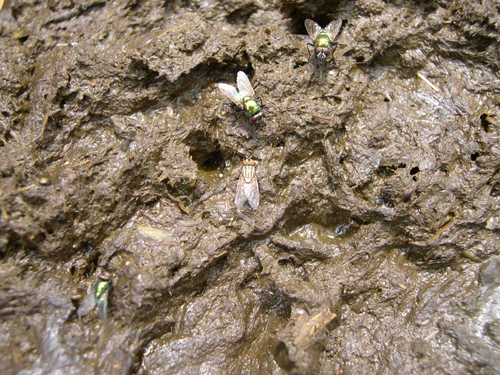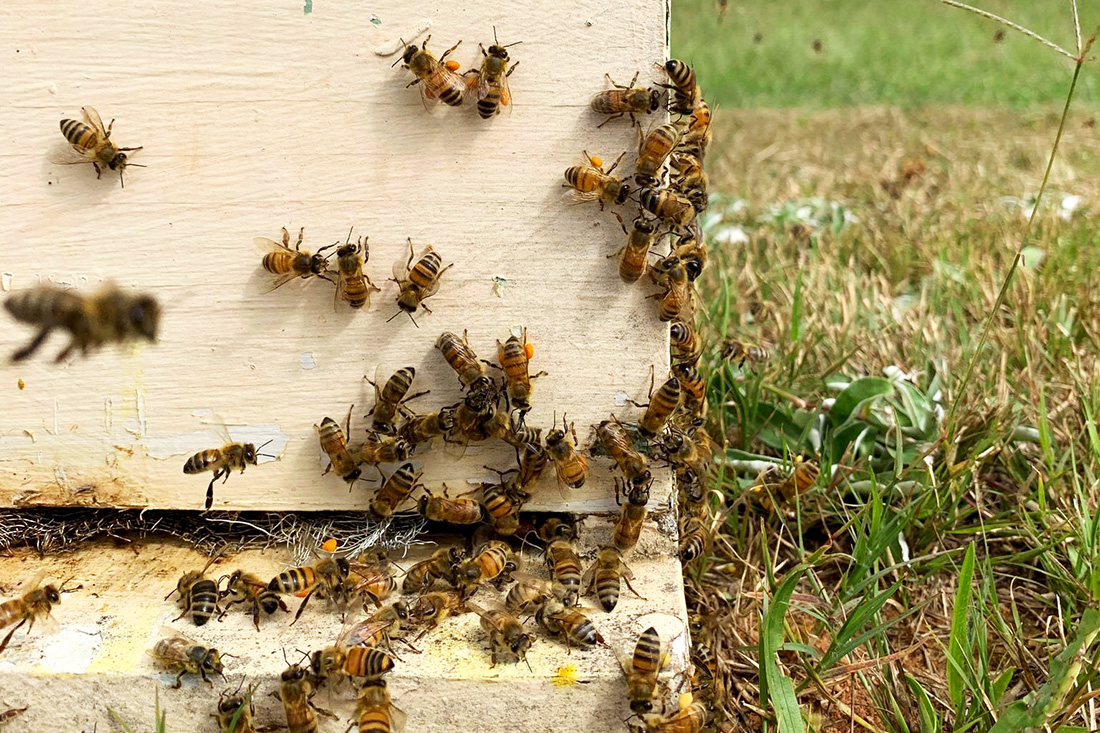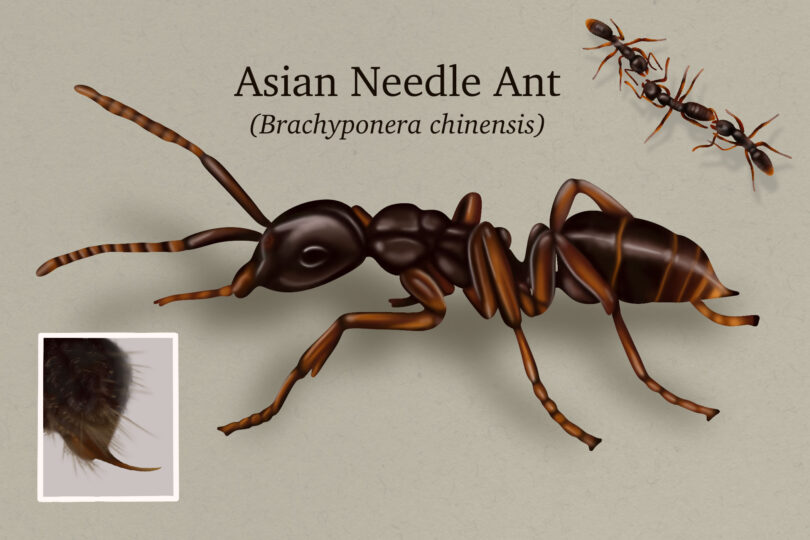Have you ever noticed flies buzzing around your favorite restaurant? No big deal, right? Wrong.
“People view flies as a nuisance, but the evidence shows they are much more than that,” said Ludek Zurek, faculty member with the Kansas State University College of Veterinary Medicine and College of Agriculture. “House flies may be the link of bacteria between food animals and residential areas.”
The University of Georgia Department of Entomology, College of Public Health and College of Veterinary Medicine will host Zurek for a seminar April 12 at 11:15 a.m. The seminar is titled, “Microbial Ecology of Muscoid Flies from Two Perspectives: Public Health and Paratransgenic Control.”
“Dr. Zurek illustrates so well that controlling flies not only protects us from the annoyance, but from illness as well,” said UGA entomologist Nancy Hinkle.
Flies like the smell of garbage and feces, and they feed on them. Because they do, their digestive tracts are full of bacteria, viruses and fungi.
“House flies are called filth flies because their larvae develop well in decaying garbage and animal feces,” Hinkle said. “Not surprisingly, they pick up disease agents such as bacteria, fungi and viruses from these materials. And, because adult flies can fly, they are highly mobile and can transfer these agents to our homes and even onto our foods.”
What is commonly referred to as a stomach virus is usually food poisoning. Zurek says the food might be contaminated by disease agents deposited there by flies.
“E. coli O157 is one of the most important foodborne human pathogens, and we find this in house flies,” he said.
The main source of E. coli O157 is undercooked ground beef, but recent outbreaks have been linked to raw spinach and peppers. The bacteria are found on cattle and swine farms and can live in the intestines of healthy animals. House flies can carry the bacteria in their digestive tract.
“When flies feed, they regurgitate their gut content, and they poop on the food, spreading these dangerous microbes,” Zurek said. “A small number of flies can heavily contaminate food.”
Results from his recent study show as few as five flies can thoroughly contaminate a hamburger in as few as 15 minutes. Flies also spread pathogens through fecal matter left on kitchen surfaces, eating utensils and food.
“Flies concentrate the microbes somehow; the microbes found in the fly per unit of weight is 10 times more concentrated than the fecal matter itself,” Zurek said. “They are attracted to food and drink in residential areas, and they are carrying a lot of microbes.”
E. coli isn’t the only dangerous pathogen they carry. Zurek found antibiotic-resistant microbes present in the flies used for his research.
Other insects may transmit foodborne pathogens, but Hinkle says houseflies are the best at it.
“Any animal can get dirty and then land on our food, but flies are so well equipped for transferring disease,” she said. “They have fuzzy feet and hairs all over their bodies for picking up and transferring fungi, bacteria and viruses.”
While flies only live a month, populations explode every summer because each female lays nearly 500 eggs in that time.
“The good news about this fly-microbe association is that fly larvae depend on bacteria for development and survival,” Zurek said. “That’s what we are trying to use against them for control.”
The seminar will be held in room 404-A of the Biological Sciences Building in Athens, Ga.









